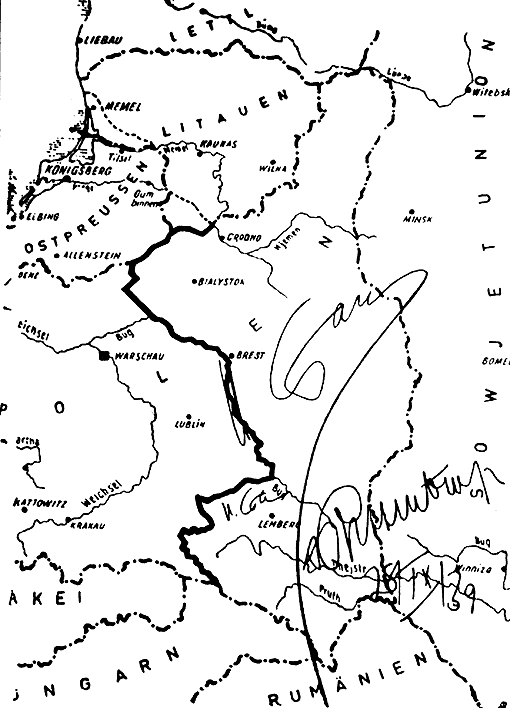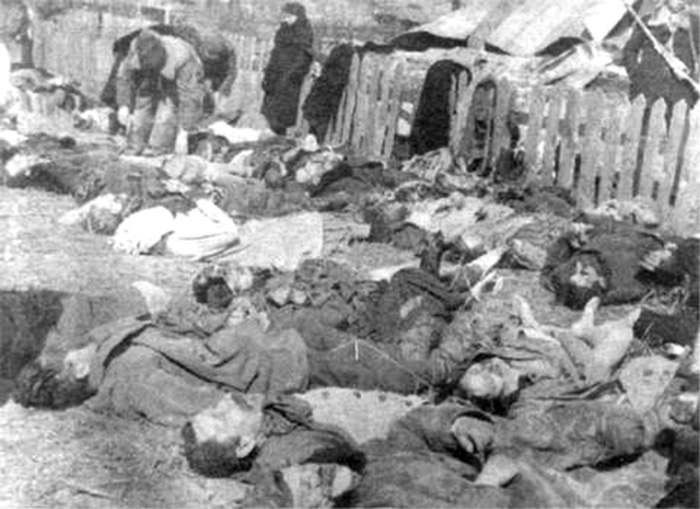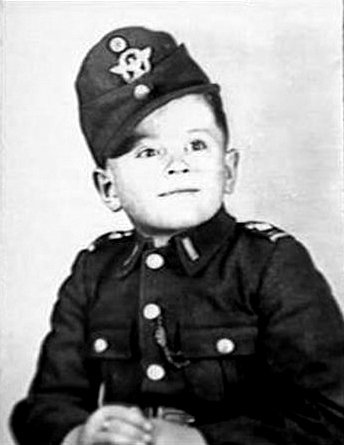|
Schutzmannschaft Battalion 107
Schutzmannschaft Battalion 107 (german: Schutzmannschaftsbataillon 107) was a failed unit of Nazi German auxiliary police in semi-colonial General Government during World War II. Created in late 1943 in Volodymyr-Volynskyi (Włodzimierz Wołyński), the battalion did not take part in combat. It was made up of 450 local Poles from Volhynia under the German command, purposed to guard railway lines. In January 1944 the entire battalion deserted,Józef Turowski, ''Pożoga: Walki 27 Wołyńskiej Dywizji AK.'' Polish Scientific Publishers PWN, s. 154-155. . and joined Armia Krajowa in defence of civilians against the wave of massacres of Poles in Volhynia. Notably, there were no trained policemen there, in contrast to ''Polnisches Schutzmannschaftsbataillon 202'' formed in Kraków Kraków (), or Cracow, is the second-largest and one of the oldest cities in Poland. Situated on the Vistula River in Lesser Poland Voivodeship, the city dates back to the seventh century. Kraków was the ... [...More Info...] [...Related Items...] OR: [Wikipedia] [Google] [Baidu] |
Nazi Germany
Nazi Germany (lit. "National Socialist State"), ' (lit. "Nazi State") for short; also ' (lit. "National Socialist Germany") (officially known as the German Reich from 1933 until 1943, and the Greater German Reich from 1943 to 1945) was the German state between 1933 and 1945, when Adolf Hitler and the Nazi Party controlled the country, transforming it into a dictatorship. Under Hitler's rule, Germany quickly became a totalitarian state where nearly all aspects of life were controlled by the government. The Third Reich, meaning "Third Realm" or "Third Empire", alluded to the Nazi claim that Nazi Germany was the successor to the earlier Holy Roman Empire (800–1806) and German Empire (1871–1918). The Third Reich, which Hitler and the Nazis referred to as the Thousand-Year Reich, ended in May 1945 after just 12 years when the Allies defeated Germany, ending World War II in Europe. On 30 January 1933, Hitler was appointed chancellor of Germany, the head of gove ... [...More Info...] [...Related Items...] OR: [Wikipedia] [Google] [Baidu] |
Auxiliary Police
Auxiliary police, also called special police, are usually the part-time reserves of a regular police force. They may be armed or unarmed. They may be unpaid volunteers or paid members of the police service with which they are affiliated. The police powers auxiliary units may exercise vary from agency to agency; some have no or limited authority, while others may be accorded full police powers. Australia The Australian Federal Police can appoint Special Members who do not have full police powers. Special Members are generally recruited locally to perform regulatory and administrative duties, but also perform some community policing duties in locations such as Norfolk Island, Christmas Island and Jervis Bay Territory. The Western Australia Police has had auxiliary officers since 2009. The role of Police Auxiliary Officers was inserted into the ''Police Act 1892'' by the ''Police Amendment Act 2009''. They generally perform administrative and other duties which do not require full ... [...More Info...] [...Related Items...] OR: [Wikipedia] [Google] [Baidu] |
General Government
The General Government (german: Generalgouvernement, pl, Generalne Gubernatorstwo, uk, Генеральна губернія), also referred to as the General Governorate for the Occupied Polish Region (german: Generalgouvernement für die besetzten polnischen Gebiete), was a German zone of occupation established after the invasion of Poland by Nazi Germany, Slovakia and the Soviet Union in 1939 at the onset of World War II. The newly occupied Second Polish Republic was split into three zones: the General Government in its centre, Polish areas annexed by Nazi Germany in the west, and Polish areas annexed by the Soviet Union in the east. The territory was expanded substantially in 1941, after the German Invasion of the Soviet Union, to include the new District of Galicia. The area of the ''Generalgouvernement'' roughly corresponded with the Austrian part of the Polish–Lithuanian Commonwealth after the Third Partition of Poland in 1795. The basis for the formation of the ... [...More Info...] [...Related Items...] OR: [Wikipedia] [Google] [Baidu] |
Volodymyr-Volynskyi
Volodymyr ( uk, Володи́мир, from 1944 to 2021 Volodymyr-Volynskyi ( uk, Володи́мир-Воли́нський)) is a small city located in Volyn Oblast, in north-western Ukraine. It is the administrative centre of the Volodymyr Raion and the center of Volodymyr hromada. The city is the historic centre of the region of Volhynia and the historic capital of the Principality of Volhynia and one of the capital cities of the Kingdom of Galicia–Volhynia. It is one of the oldest cities of Ukraine and Kyiv Rus'. Population: The medieval Latin name of the town "Lodomeria" became the namesake of the 19th century Austro-Hungarian Kingdom of Galicia and Lodomeria, of which the town itself was not a part. south from Volodymyr is Zymne, the oldest Orthodox Monastery in Volynia is located. Name The city was named ''Volodymyr'', after Prince Volodymyr the Great (born in the village of Budiatychi, about 20 km from Volodymyr), and later also abbreviated ''Lodomeria'', ... [...More Info...] [...Related Items...] OR: [Wikipedia] [Google] [Baidu] |
Volhynia
Volhynia (also spelled Volynia) ( ; uk, Воли́нь, Volyn' pl, Wołyń, russian: Волы́нь, Volýnʹ, ), is a historic region in Central and Eastern Europe, between south-eastern Poland, south-western Belarus, and western Ukraine. The borders of the region are not clearly defined, but the territory that still carries the name is Volyn Oblast, in western Ukraine. Volhynia has changed hands numerous times throughout history and been divided among competing powers. For centuries it was part of the Polish-Lithuanian Commonwealth. After the Russian annexation, all of Volhynia was part of the Pale of Settlement designated by Imperial Russia on its south-western-most border. Important cities include Lutsk, Rivne, Volodymyr, Ostroh, Ustyluh, Iziaslav, Peresopnytsia, and Novohrad-Volynskyi (Zviahel). After the annexation of Volhynia by the Russian Empire as part of the Partitions of Poland, it also included the cities of Zhytomyr, Ovruch, Korosten. The city of Zviahel was r ... [...More Info...] [...Related Items...] OR: [Wikipedia] [Google] [Baidu] |
Józef Turowski
Józef Turowski (died, Warsaw, 24 July 1989) was a Polish military historian. He authored two books, published in 1990: ''Pożoga: Walki 27 Wołyńskiej Dywizji AK'' (Conflagration: Battles of the Home Army's 27th Wołyń Division); and, with Władysław Siemaszko, ''Zbrodnie nacjonalistów ukraińskich dokonane na ludności polskiej na Wołyniu 1939-1945'' (Crimes Committed by Ukrainian Nationalists against Wołyń's Polish Population, 1939–1945). Research ''Crimes Committed by Ukrainian Nationalists'', written with the aid of researcher, lawyer, and former Home Army soldier Władysław Siemaszko, recounts the 1942–45 massacres of Poles in Poland's prewar Wołyń Province. It produced an avalanche of responses from massacre survivors and witnesses, providing additional facts about events and localities that had not been included in the original edition. The book features the first chronological register of Ukrainian ''OUN'' and '' UPA'' attacks on the Polish popula ... [...More Info...] [...Related Items...] OR: [Wikipedia] [Google] [Baidu] |
Polish Scientific Publishers PWN
Wydawnictwo Naukowe PWN (''Polish Scientific Publishers PWN''; until 1991 ''Państwowe Wydawnictwo Naukowe'' - ''National Scientific Publishers PWN'', PWN) is a Polish book publisher, founded in 1951, when it split from the Wydawnictwa Szkolne i Pedagogiczne. Adam Bromberg, who was the enterprise's director between 1953 and 1965, made it into communist Poland's largest publishing house. The printing house is best known as a publisher of encyclopedias, dictionaries and university handbooks. It is the leading Polish provider of scientific, educational and professional literature as well as works of reference. It authored the Wielka Encyklopedia Powszechna PWN, by then the largest Polish encyclopedia, as well as its successor, the Wielka Encyklopedia PWN, which was published between 2001 and 2005. There is also an online PWN encyclopedia – Internetowa encyklopedia PWN. Initially state-owned, since 1991 it has been a private company. The company is a member of International Associa ... [...More Info...] [...Related Items...] OR: [Wikipedia] [Google] [Baidu] |
Armia Krajowa
The Home Army ( pl, Armia Krajowa, abbreviated AK; ) was the dominant resistance movement in German-occupied Poland during World War II. The Home Army was formed in February 1942 from the earlier Związek Walki Zbrojnej (Armed Resistance) established in the aftermath of the German and Soviet invasions in September 1939. Over the next two years, the Home Army absorbed most of the other Polish partisans and underground forces. Its allegiance was to the Polish government-in-exile in London, and it constituted the armed wing of what came to be known as the Polish Underground State. Estimates of the Home Army's 1944 strength range between 200,000 and 600,000. The latter number made the Home Army not only Poland's largest underground resistance movement but, along with Soviet and Yugoslav partisans, one of Europe's largest World War II underground movements. The Home Army sabotaged German transports bound for the Eastern Front in the Soviet Union, destroying German supplies and ty ... [...More Info...] [...Related Items...] OR: [Wikipedia] [Google] [Baidu] |
Massacres Of Poles In Volhynia
The massacres of Poles in Volhynia and Eastern Galicia ( pl, rzeź wołyńska, lit=Volhynian slaughter; uk, Волинська трагедія, lit=Volyn tragedy, translit=Volynska trahediia), were carried out in German-occupied Poland by the Ukrainian Insurgent Army, or the UPA, with the support of parts of the local Ukrainian population against the Polish minority in Volhynia, Eastern Galicia, parts of Polesia and Lublin region from 1943 to 1945. The peak of the massacres took place in July and August 1943. Most of the victims were women and children. Many of the Polish victims regardless of age or gender were tortured before being killed; some of the methods included rape, dismemberment or immolation, among others. The UPA's actions resulted in between 50,000 and 100,000 deaths. According to Timothy Snyder, the ethnic cleansing was a Ukrainian attempt to prevent the post-war Polish state from asserting its sovereignty over Ukrainian-majority areas that had been part of th ... [...More Info...] [...Related Items...] OR: [Wikipedia] [Google] [Baidu] |
Polnisches Schutzmannschaftsbataillon 202
''Schutzmannschaft'' Battalion 202 was a failed collaborationist auxiliary police battalion in the General Government during World War II. It was made up of 360 conscripts with German leadership. The unit was created in Kraków on March 27, 1942 with recruitment beginning in May. Only two Polish men volunteered. As a result, the Germans resorted to conscription from the regular Polish city-police called ''Einheimische Polizei''. Once in Volhynia, the battalion stationed in Łuck originally. Soon later, in around Kostopol, half the members deserted to Polish resistance 27th Home Army Infantry Division, in defence of ethnic Polish population against the UPA massacres, and also committed a number of crimes against the civilian population, participating in the pacification of Ukrainian villages. Additional 60 Poles were rounded up and executed by the Nazis for mutiny. Background During formation, the battalion stationed in Kraków at Michałowskiego street (renamed Luxemburgstrasse ... [...More Info...] [...Related Items...] OR: [Wikipedia] [Google] [Baidu] |
Kraków
Kraków (), or Cracow, is the second-largest and one of the oldest cities in Poland. Situated on the Vistula River in Lesser Poland Voivodeship, the city dates back to the seventh century. Kraków was the official capital of Poland until 1596 and has traditionally been one of the leading centres of Polish academic, economic, cultural and artistic life. Cited as one of Europe's most beautiful cities, its Old Town with Wawel Royal Castle was declared a UNESCO World Heritage Site in 1978, one of the first 12 sites granted the status. The city has grown from a Stone Age settlement to Poland's second-most-important city. It began as a hamlet on Wawel Hill and was reported by Ibrahim Ibn Yakoub, a merchant from Cordoba, as a busy trading centre of Central Europe in 985. With the establishment of new universities and cultural venues at the emergence of the Second Polish Republic in 1918 and throughout the 20th century, Kraków reaffirmed its role as a major national academic and a ... [...More Info...] [...Related Items...] OR: [Wikipedia] [Google] [Baidu] |
27th Home Army Infantry Division (Poland)
27th Volhynian Infantry Division ( pl, 27 Wołyńska Dywizja Piechoty) was a World War II Polish Armia Krajowa unit fighting in the Volhynia region in 1944. It was created on January 15, 1944, from smaller partisan self-defence units during the Volhynia massacre and was patterned after the prewar Polish 27th Infantry Division. History The unit was mobilized from secondary units from the Kowel, Łuck and Równe Home Army inspectorates as well as from former Polish policemen who had deserted German service, and numbered about 6,500 people in January 1944. After mobilization in March 1944, the division became one of the largest partisan units in Central Europe with 7300 soldiers, officers and NCOs. The division initially aided local self-defence units during the massacres of Poles in Volhynia and fought against the Ukrainian Insurgent Army. It also fought German anti-partisan units and regular Wehrmacht troops. The unit commander, Colonel Babiński strictly prohibited any repres ... [...More Info...] [...Related Items...] OR: [Wikipedia] [Google] [Baidu] |


.jpg)

.jpg)



